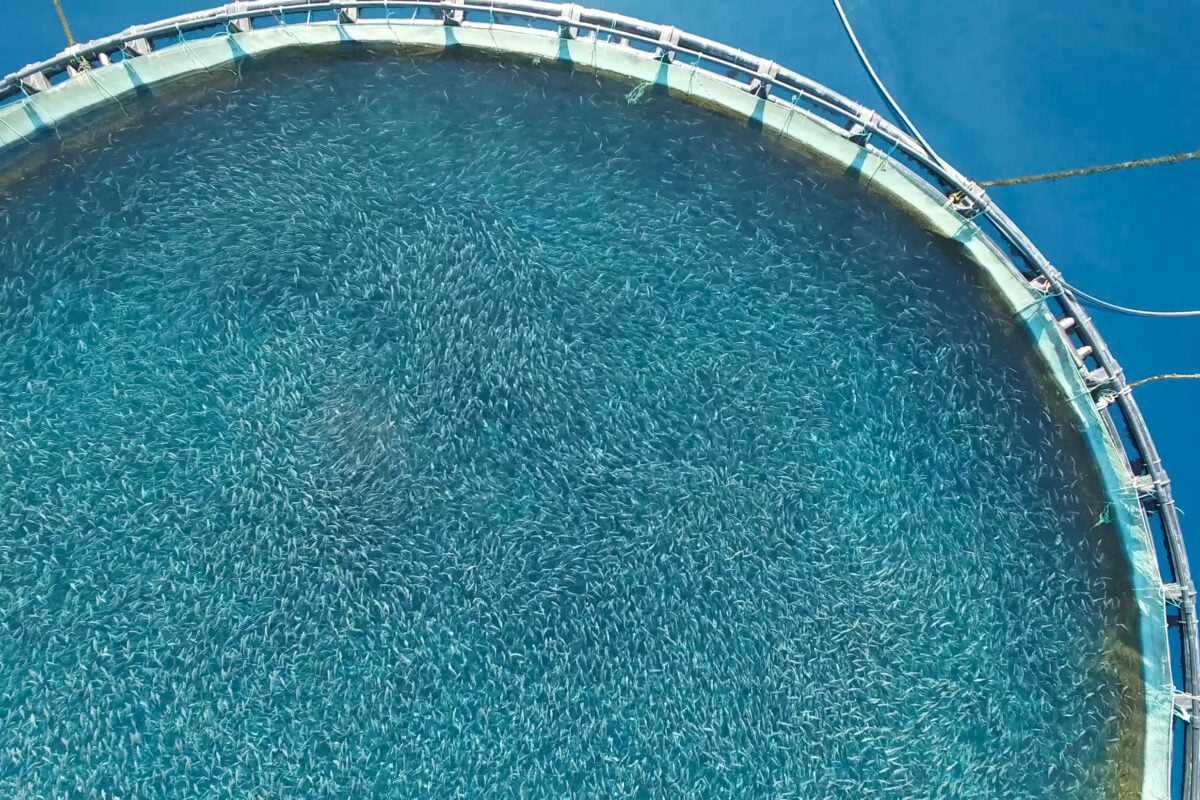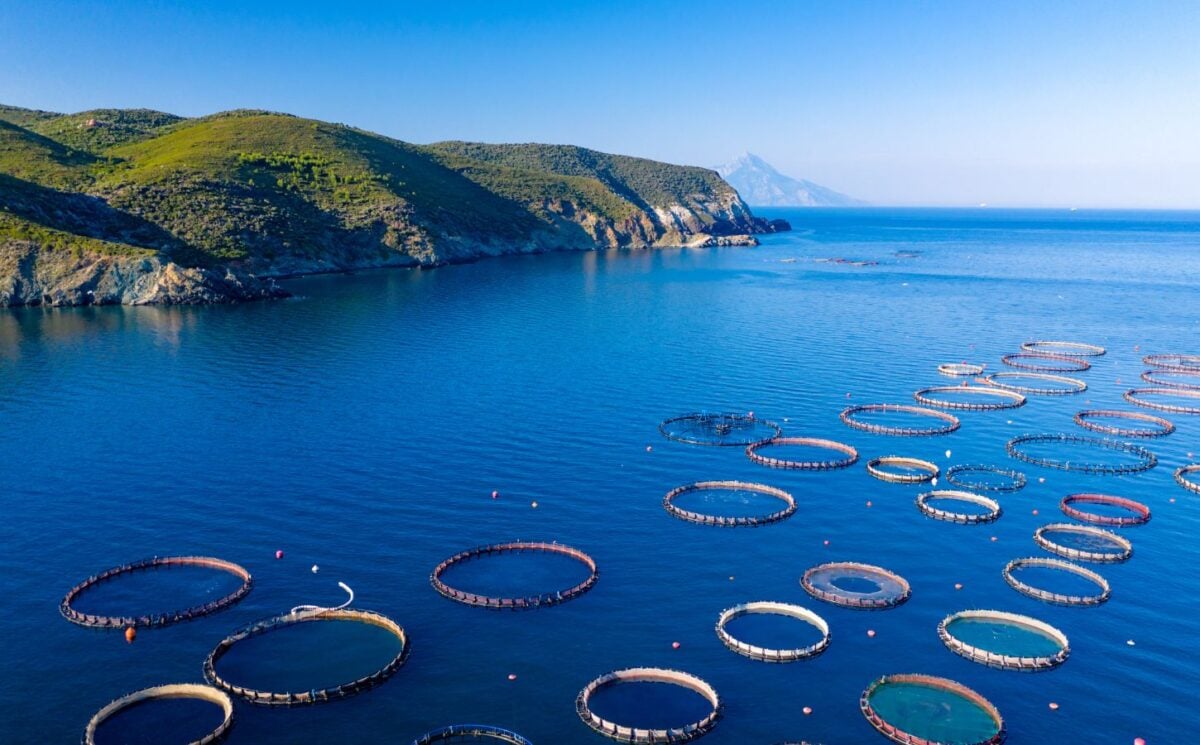A new study says that the impact of aquaculture on wild fishes* is “greater than commonly cited,” further undermining the widely held belief that it can be part of a sustainable food system.
Read more: Scientists Capture Footage Of Octopuses And Fishes Hunting Cooperatively
The research was led by scientists from the University of Miami’s Rosenstiel School of Marine, Atmospheric, and Earth Science, Oceana, and New York University, and was published in the journal Science Advances earlier this week.
It suggests that the ratio of “wild fish inputs” to “farmed fish outputs” – meaning the weight of wild-caught fishes killed and fed to farmed ones – is between 27 percent and 307 percent higher than previous estimates. In particular, protein “output” from carnivorous species such as salmon, trout, and eel is thought to require more than twice the “input” from wild fishes.
For the study, the researchers noted several previously overlooked sources of wild-caught fishes in aquaculture feed. They also incorporated data on “collateral fishing mortality,” which includes seabirds, turtles, marine mammals, and invertebrates as well as wild fishes.
In addition, the researchers listed abandoned gear and so-called “processing collateral,” along with the spread of pathogens, antibiotics, and pesticides to wild populations as additional factors in the industry’s lack of sustainability. Widespread coastal degradation and the likely underestimated greenhouse gas emissions (GHGs) of farming fishes also contribute.
Read more: Canada Bans Open-Net Pen Salmon Farming
Is aquaculture sustainable?

According to the UK’s Sea Fish Industry Authority, aquaculture is the fastest-growing food supply sector in the world, expanding more than 600 percent between 1990 and 2020.
The farming of fishes has become a billion-dollar industry, and aquaculture alone is responsible for about half of all fishes consumed by humans. (Around 1.5 trillion individual animals per year.) This also means aquaculture is complicit in many of the same injustices – disease, cruelty, starvation, and death – rife in the farming of terrestrial animals.
The authors of the new study note that more research is needed to get a true picture of the industry’s impact on the environment and biodiversity. Concluding, they suggest that all directives to “expand this sector on sustainability grounds should be reconsidered.”
*While the English language usually refers to multiple fishes as “fish”, we use “fishes” to emphasize that they are individuals.
Read more: ‘Truly Remarkable’: Study Finds Fish Recognize Themselves, Hinting At Self-Awareness






